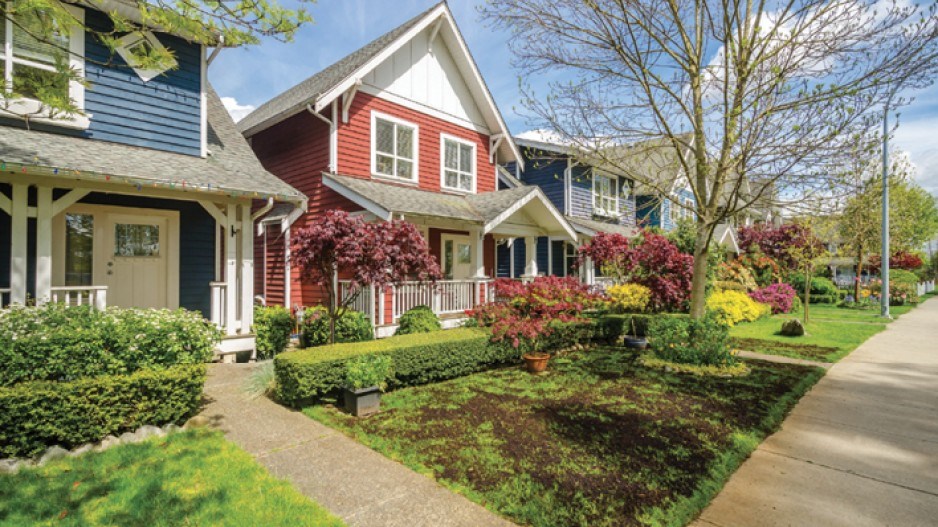Among the insights condo marketer Bob Rennie offered listeners on May 15 during what's become an annual presentation to the Urban Development Institute (UDI) was his affection for the Rolling Stones' album title Let It Bleed – a reference, he explained, to intravenous drug users finding a healthy vein. The line inspires Rennie to seek answers (as, one assumes, an addict seeks a vein).
But the answers Rennie offered listeners during his hour-long talk touched on some of the anxieties that have market-watchers on pins and, yes, needles – specifically, the old chestnuts of affordability and the role of foreign capital and buyers from Asia.
The number that grabbed headlines was Rennie's claim that Greater Vancouver property owners 55 years and older hold clear title to 185,149 properties valued at more than $163.4 billion. Of these, 55- to 74-year-olds own the lion's share – 128,359 properties worth a total of $113.4 billion.
But this is familiar ground, as close followers of Rennie's talks know.
Two years ago, the UDI heard that 55- to 74-year-olds owned 113,000 single-family residences valued at $88 billion.
The figures have driven Rennie's confidence in the local market, because on the one hand those owners are going to seek ways to preserve wealth. On the other, the kids and grandkids of these owners need assistance to enter the market.
Unchanged from 2012's presentation, 69% of all Greater Vancouver home sales are to existing owners – and, according to Rennie, the percentage of first-time homebuyers whose down payment comes entirely or partly from parents or grandparents is 40%.
Vancouver's housing market may not reflect local incomes, but Rennie's comments suggested it has a lot to do with local equity.
And the local equity is being developed by money flowing in from offshore, and the buyers who he said will eventually downsize. It's already happening with properties purchased in the 1980s, whose owners, Rennie said, are selling in favour of new high-end condos that allow them to maintain their lifestyle in smaller premises.
“This is an emerging pattern to watch,” he said. “The immigration of the '90s is now taking on the same buying patterns as our local population, our local homeowners. And if we look forward, 10 to 15 years from now, the mainland China immigration of today will be taking on the same buying habits as the immigration of the 1980s and '90s from Hong Kong.”
Keeping with the Rolling Stones theme, Bill MacEwen spoke a lot about “frictionless” transactions over coffee recently as he discussed the aim of his new venture, SpaceList.
SpaceList is a commercial leasing database that's positioned to inherit the mantle formerly borne by listings site Space4lease, a Vancouver startup acquired by Altus Group in 2008.
Since launching in 2011, it has developed a database of more than 20,000 listings representing 217 million square feet of commercial space across Canada. The site independently aggregates listings from the country's major brokerages, and – in MacEwen's words – facilitates access to the information for both brokers and tenants.
“We saw a huge opportunity to come into the market and remove all the friction,” said MacEwen, who developed the idea for the site while marketing space at 717 West Pender Street for Deecorp Properties Ltd. “We're really focused on the most efficient way to aggregate listings.”
The site is now attracting 100,000 visits a month, yielding 4,000 transaction inquiries. The basic site is free for all to use, but MacEwen plans to roll out a premium version this summer that will garner revenues.
While the experience may reduce the friction between landlord and tenant, MacEwen believes the site offers value that will give users sticky fingers that attach them to its offerings.
Any number of tunes from the Stones' Aftermath album could serve as a soundtrack for the tale of Squamish Oceanfront Development Corp., which was charged with cleaning up and redeveloping the 59-acre former industrial site. “It's Not Easy” and “Take It or Leave It” come to mind as applicable to a situation that required Squamish to repay $3 million to creditors earlier this month.
The good news is the May 5 deadline was met, with just two more repayments of $3 million and $5 million respectively set for May 2015 and 2016.
But the better news is that a deal is in the offing for the property. The prospective buyers are Bethel Lands Corp. and Matthews Southwest Developments Ltd.
The sale of the property would be a significant step forward a decade after Squamish council established the development corporation. An initial proposal for a $500 million mixed-use community collapsed in October 2006 when Vancouver-based Qualex-Landmark Group terminated its involvement following significant changes to its terms with the district.
Community consultations subsequently led to a vision for the site that called for an equal mix of residential, commercial and amenity space.




